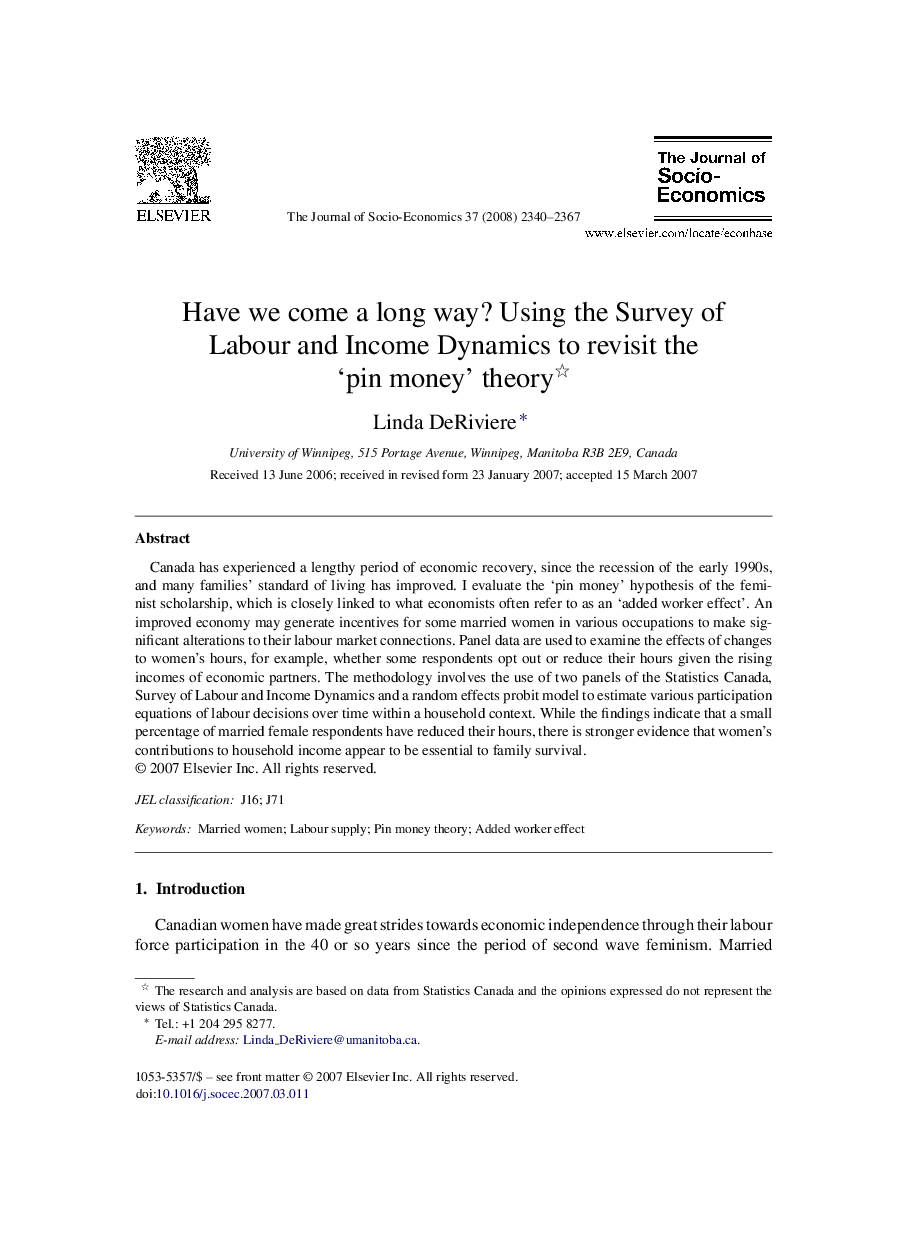| Article ID | Journal | Published Year | Pages | File Type |
|---|---|---|---|---|
| 971076 | The Journal of Socio-Economics | 2008 | 28 Pages |
Canada has experienced a lengthy period of economic recovery, since the recession of the early 1990s, and many families’ standard of living has improved. I evaluate the ‘pin money’ hypothesis of the feminist scholarship, which is closely linked to what economists often refer to as an ‘added worker effect’. An improved economy may generate incentives for some married women in various occupations to make significant alterations to their labour market connections. Panel data are used to examine the effects of changes to women's hours, for example, whether some respondents opt out or reduce their hours given the rising incomes of economic partners. The methodology involves the use of two panels of the Statistics Canada, Survey of Labour and Income Dynamics and a random effects probit model to estimate various participation equations of labour decisions over time within a household context. While the findings indicate that a small percentage of married female respondents have reduced their hours, there is stronger evidence that women's contributions to household income appear to be essential to family survival.
